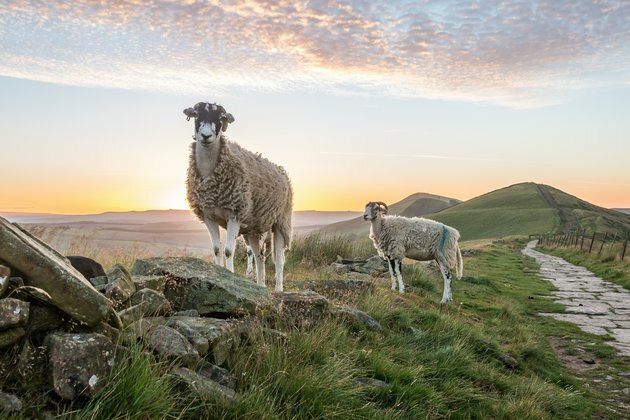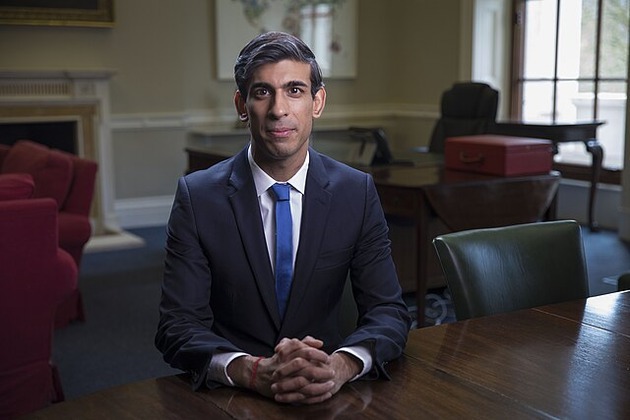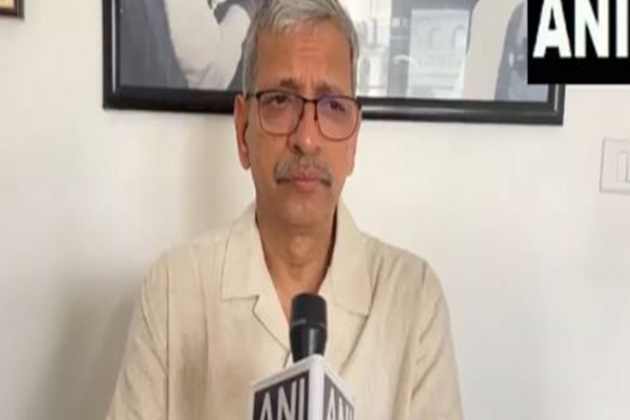Britain needs to grow more trees - are sheep farms the answer?
The Conversation
17 Sep 2020, 01:11 GMT+10

Britain's green fields and "wild" uplands may have become important parts of the national heritage, but they are landscapes wholly created by people. There's no reason to think of these areas as precious natural resources to be preserved at all costs.
If humans hadn't chopped down the trees, most of what are now Britain's sheep farms would still be part of the large forests that once covered the islands. So why can't some of these areas be turned back into woodland?
Doing so would help fight climate change, as trees absorb carbon from the air and keep it out of the atmosphere. As we found in our new research, there's even a solid economic case for sheep farmers to instead grow forests and become carbon offsetters.
Tree growing is a political hot topic in the UK, since vast areas of new forest will be needed if the country is to achieve net zero emissions.
The uplands used for sheep farming are often the focus of rewilding and forest planting projects. These landscapes are extensive and characterised by low productivity. Overgrazing is blamed for a lack of biodiversity, soil erosion and flooding.
Added to this, sheep emit the potent greenhouse gas methane through their digestive process, which makes them a target for climate-protecting measures. But if farming is to make room for trees, it must do so without crashing rural economies and food production.
Thanks to low productivity and the low prices of lamb and wool, more than 90% of the total income to UK sheep farms comes from government subsidies. By maintaining the status quo, these subsidies prevent wholesale change in land use needed for effective action on climate change. At the same time, international payments from western governments are funding forest planting at vast scales in less developed countries.
The difference in approaches at home and abroad smacks of neo-colonialism. The injustice is deepened by the recognition that climate change has largely been caused by western nations, while less developed countries bear the brunt of it. Is it fair for western governments to pay others to fix a problem of their own making, without making significant changes to land management at home?
An alternative income for sheep farmers
Public subsidies are only part of the story, however. In our new research, we explored how private financing for woodlands might be obtained through carbon offsetting, and the potential income for farmers who want to convert some (or all) of their land from sheep to trees.
We found that farming trees for carbon can provide an alternative source of income, funded by people and organisations who want to offset their emissions by buying carbon credits. For example, an individual may pay for carbon credits to compensate for their contribution to aviation emissions, or a business may buy carbon credits in order to meet corporate responsibility objectives.
On land close to mature trees that act as seed sources, with a low risk of the seeds or seedlings being eaten, forests can regenerate naturally. Our research shows that "selling" the carbon absorbed on naturally regenerating land means farms could break even or make a modest profit without subsidies. However, in other locations expensive interventions such as tree planting and deer fencing will be needed to establish woodland.
Read more: What would happen if we abandoned Britain's farms and left them to nature?
The price at which carbon can be sold will largely determine whether this is profitable. In the UK, it can currently be as cheap as Pound 3 per tonne of CO₂, which for a naturally regenerating forest translates to profits of only Pound 90 per hectare (about two football pitches) over a 25-year period. Even at the most expensive current carbon price, profits would still be just Pound 540. Clearly, this isn't enough for a farmer to live on, meaning subsidies would still be needed.
However, as the climate crisis intensifies and stricter emission policies are implemented, the climate market should grow, making forests more attractive financially. At some point in the future, markets might even pay the social price of carbon, the price society is theoretically willing to pay for the damage caused by CO₂ emissions.
This would more than triple the profit per hectare of carbon forests compared to the maximum at today's market prices. But there's currently little political will to translate the theoretical price into reality.
As the UK has left the European Union, it is no longer subject to the common agricultural policy, and subsidies are being reformed. The UK government is introducing a system that pays "public money for public goods".
But how will public goods be defined, and how should they be prioritised? In making these decisions, policymakers will face tradeoffs between maintaining traditional food production and fostering a landscape that supports a more sustainable future, at both national and global levels.
We urgently need to figure out how to plant trees in the UK on the vast scales needed to make a dent in atmospheric CO₂, without damaging food production or wrecking rural livelihoods and economies. One way forward may be to consider private financing via carbon markets, alongside subsidies that reward farmers for capturing carbon as well as producing food.
Finance is being leveraged at enormous scales to reforest landscapes in less developed countries. It's about time western countries dropped the double standards and took the same approach at home.
Read more: Rewilding: rare birds return when livestock grazing has stopped
Authors: Connie O'Neill - Researcher, Stockholm Environment Institute, University of York | Colin Osborne - Professor of Plant Biology, University of Sheffield 
 Share
Share
 Tweet
Tweet
 Share
Share
 Flip
Flip
 Email
Email
Watch latest videos
Subscribe and Follow
Get a daily dose of Bristol Star news through our daily email, its complimentary and keeps you fully up to date with world and business news as well.
News RELEASES
Publish news of your business, community or sports group, personnel appointments, major event and more by submitting a news release to Bristol Star.
More InformationUnited Kingdom
SectionFaulty IT system at heart of UK Post Office scandal, says report
LONDON, U.K.: At least 13 people are believed to have taken their own lives as a result of the U.K.'s Post Office scandal, in which...
Ex-UK PM Sunak takes advisory role at Goldman Sachs
NEW YORK CITY, New York: Former British prime minister Rishi Sunak will return to Goldman Sachs in an advisory role, the Wall Street...
Abdulla Al Hamed meets leading global drama, film figures in London
LONDON, 12th July 2025 (WAM) -- Abdulla bin Mohammed bin Butti Al Hamed, Chairman of the National Media Office and Chairman of the...
"Conclusive that accident happened because both engines lost power": Aviation expert Ehsan Khalid on AAIB preliminary report
New Delhi [India], July 12 (ANI): Aviation expert Ehsan Khalid stated on Saturday that the preliminary findings of the Aircraft Accident...
Court grants time to arms dealer Sanjay Bhandari to avail legal remedy against order declaring him fugitive
New Delhi [India], July 12 (ANI): Delhi's Rouse Avenue court on Saturday granted time to Arms dealer Sanjay Bhandari to exhaust statutory...
Bimal Roy's restored 'Do Bigha Zamin' to premiere in Venice
Mumbai (Maharashtra) [India], July 12 (ANI): The restored 4K version of Do Bigha Zamin (1953), directed by Bimal Roy, will have its...
International
SectionFrom France’s shores, desperate migrants look to reach British coast
ECAULT BEACH, France: On clear days, the white cliffs of the United Kingdom, are visible from northern France, where men, women, and...
CDC: US records 1,288 measles cases, most since 1992 outbreak
ATLANTA, Georgia: The United States is facing its worst measles outbreak in more than three decades, with 1,288 confirmed cases so...
Gaza War sucking life out of an Israeli generation
In the past month alone, 23 Israeli soldiers have been killed in Gaza—three more than the number of remaining living hostages held...
Faulty IT system at heart of UK Post Office scandal, says report
LONDON, U.K.: At least 13 people are believed to have taken their own lives as a result of the U.K.'s Post Office scandal, in which...
Travelers can now keep shoes on at TSA checkpoints
WASHINGTON, D.C.: Travelers at U.S. airports will no longer need to remove their shoes during security screenings, Department of Homeland...
Rubio impersonator used AI to reach officials via Signal: cable
WASHINGTON, D.C.: An elaborate impersonation scheme involving artificial intelligence targeted senior U.S. and foreign officials in...












